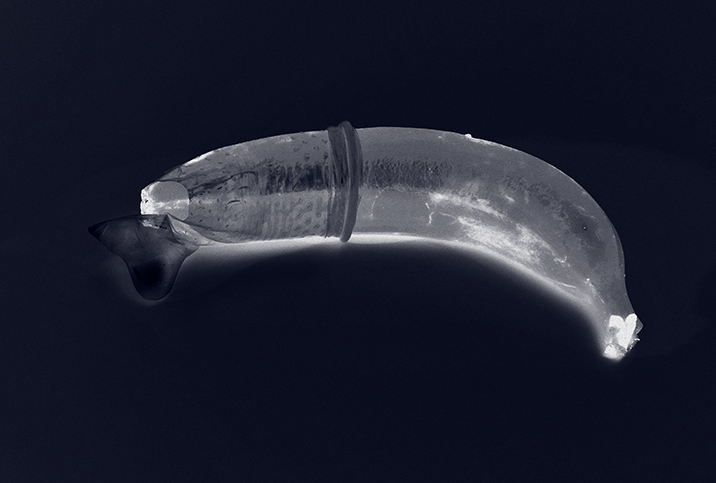Yes, You Can Be Allergic to Semen

Genital itching, blisters and redness are telltale symptoms of many conditions, so much so that even a physician can have a difficult time knowing where to start with a female patient. Once sexually transmitted infections (STIs) and vaginitis are ruled out, a latex allergy may be next in the line of usual suspects.
However, if a woman experiences the same symptoms while using a non-latex condom, she may be part of the small group of people who are allergic to their partner's semen. Human seminal plasma (HSP) hypersensitivity is a rare allergy afflicting up to an estimated 40,000 women in the United States.
A protein allergy
Allergies to semen operate much like any other allergy, explained Jonathan A. Bernstein, M.D., an allergy specialist.
"Seminal plasma hypersensitivity is an allergic reaction to a protein in the seminal fluid," Bernstein said. "It is not a reaction to spermatozoa. Women develop specific immunoglobulin E [an antibody] to prostate-specific antigen in their sexual partner's seminal fluid, similar to how someone becomes sensitized to a pollen aeroallergen."
To understand a semen allergy, we have to understand what comprises semen. Spermatozoa consist of a head, body and tail. The head contains 23 chromosomes, or half the chromosomes necessary to create an embryo. The body and tail of spermatozoa consist of mitochondria and proteins that energize the sperm while propelling it. Sperm makes up only about 5 percent of semen; the rest is sugars, water, proteins, vitamin C, zinc and prostaglandins, or secretions of the prostate gland.
Bernstein explained no human is actually allergic to the genetic material of another human, but rather, those afflicted are reacting to the other 95 percent of ejaculated fluid.
Bernstein explained no human is actually allergic to the genetic material of another human, but rather, those afflicted are reacting to the other 95 percent of ejaculated fluid. Which part of the 95 percent varies. For instance, there's a difference between true HSP and having a reaction as an extension of another preexisting allergy.
"Male partners ingesting a food or taking a medication that the female is allergic to can have these proteins transferred intravaginally during intercourse, causing a potential reaction," Bernstein said.
For instance, a woman with a peanut allergy may experience symptoms upon exposure to her partner's semen if he recently ingested peanuts. Even if the partner brushed their teeth, showered and thoroughly sterilized themselves of all traces of the peanut, those chemicals may still come through in their ejaculate. This is all the more reason for clear communication between sexual partners about all aspects of their life, even areas they may not think are totally relevant.
Desensitization is the key
Despite typically affecting the vaginal region, a semen allergy is pinpointed through a process that closely resembles the diagnosis for other types of allergies. First, other possibilities (often latex allergies) are ruled out and then the allergen is applied directly.
"Confirmation is by skin prick testing their sexual partner's whole seminal fluid, after separating out the spermatozoa," Bernstein said. "It is possible to cure women with seminal plasma hypersensitivity with seminal plasma protein desensitization, typically administered intravaginally."
In other words, semen is processed and the spermatozoa is removed or "washed." A small sample of the remaining liquid is injected into a woman's skin, typically in the arm, and the site is then monitored. This is the same way any other allergy scratch test is done.
'It is possible to cure women with seminal plasma hypersensitivity with seminal plasma protein desensitization, typically administered intravaginally.'
The cure then hinges on desensitization to the allergen or introducing gradually larger amounts of the semen to the allergic patient. The allergen is introduced in small doses intravaginally or subcutaneously. The latter is a treatment spanning a few hours during which a doctor injects increasing quantities of a partner's semen into a woman's vagina every 20 minutes.
Once a woman is desensitized to an amount equaling the real world quantity of a typical ejaculation—around 3.7 milliliters, or about three-quarters of a teaspoonful—a clinician may prescribe their patient have sex every 48 hours with that same partner. If the couple live a long distance from each other, doses of semen may be frozen so the woman can continue regular exposure and remain desensitized to the potential allergen.
Conception can be difficult
Beyond discomfort and a trip to the doctor, seminal plasma hypersensitivity may present difficulty in childbearing.
"A semen allergy isn't directly linked to a woman's fertility, but it does make the process of conception much more difficult," said Adrienne Crowe, a certified nurse-midwife and mother of the author. "Symptoms present postcoitally, which can deter people from having sex in the future if they associate discomfort with intercourse. If the symptoms aren't bearable for the potential mother, in vitro fertilization, which can be very costly for many, may become a necessary route."
Besides being an expensive and often difficult process, IVF doesn't fix the impediment to a couple's sex life that an allergy can cause.
'If the symptoms aren't bearable for the potential mother, in vitro fertilization, which can be very costly for many, may become a necessary route.'
If repeated exposure—in this case, sex—isn't enough to resolve the allergy, the reaction can typically be managed through strict condom use or coitus interruptus, the practice of stopping sex before ejaculation. Most cases of this rare condition aren't severe enough to be life-threatening, but a drastic case may cause anaphylaxis and necessitate the use of an EpiPen, an autoinjector that delivers a dose of epinephrine, a medication often used in emergencies.
Human seminal plasma hypersensitivity is more confirmation of an adage that holds true for many sexual situations: Be careful what you put into your body.


















